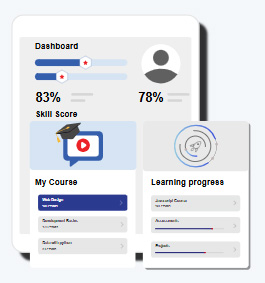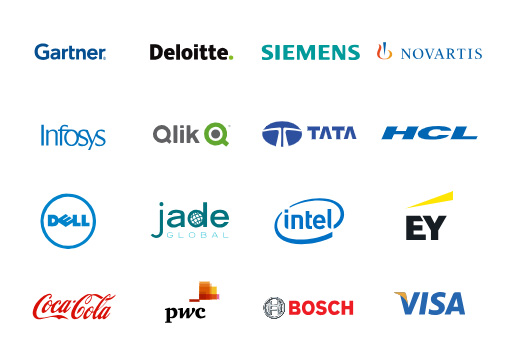DevOps Online Training

- Learn & practice Course Concepts
- Course Completion Certificate
- Earn an employer-recognized Course Completion certificate by Ziventra.
- Resume & LinkedIn Profile
- Mock Interview
- Qualify for in-demand job titles
- Career support
- Work Support

DevOps Online Training Content
You will be exposed to the complete VMware View Training course details in the below sections.
Topic-wise Content Distribution
Introduction to DevOps Architecture
- Core principles of DevOps and their role in modern software delivery
- Key components: CI/CD pipelines, automation, monitoring, collaboration
- Responsibilities and strategic role of a DevOps Architect
- Alignment of DevOps with Agile and Lean methodologies
Continuous Integration (CI) and Continuous Delivery (CD)
- Fundamentals of CI/CD and its importance in DevOps
- Tools: Jenkins, GitLab CI, CircleCI, Bamboo
- Building robust CI/CD pipelines with automated testing and deployments
- Best practices for reducing time-to-release and improving software quality
DevOps Tools and Technologies
- Introduction to essential DevOps tools: Git, Docker, Kubernetes, Ansible, Terraform, Chef, Puppet
- Hands-on with containerization and orchestration (Docker & Kubernetes)
- Infrastructure automation using Ansible, Terraform, and Chef
- Overview of DevOps services in AWS, Azure, and Google Cloud
Infrastructure as Code (IaC)
- Principles and benefits of Infrastructure as Code
- Tools: Terraform, AWS CloudFormation, Ansible
- Writing and deploying IaC scripts for scalable infrastructure
- Best practices for managing infrastructure using code
Automation and Configuration Management
- Automating system configuration and deployments
- Tools: Ansible, Chef, Puppet
- Version control in configuration management
- Scalable scripting for consistent and repeatable environments
DevOps in Cloud Environments
- Cloud integration in DevOps pipelines
- Cloud-native development strategies
- DevOps implementation across AWS, Azure, and GCP
- Cost optimization, scalability, and security best practices
Monitoring, Logging, and Security in DevOps
- Real-time monitoring tools: Prometheus, Grafana, ELK Stack
- Logging strategies for observability and diagnostics
- Introduction to DevSecOps: integrating security into DevOps workflows
- Automating vulnerability scanning and patching processes
Advanced DevOps Practices
- Deployment strategies: blue-green, canary, and rolling updates
- High availability and fault-tolerant architectures
- Managing multi-cloud environments and disaster recovery planning
- Case studies from enterprise-scale DevOps transformations
DevOps Strategy and Culture
- Building a DevOps mindset and organizational culture
- Fostering collaboration between Dev, Ops, and Security teams
- Key performance metrics: deployment frequency, MTTR, change failure rate
- Strategies for continuous improvement and business alignment
Certification Preparation and Career Guidance
- DevOps Architect certification exam preparation
- Practice tests, mock interviews, and study materials
- Resume building and job interview preparation
- Exploring roles: DevOps Architect, Automation Engineer, Cloud Infrastructure Lead
Request More information
Hands on DevOps Projects
Our DevOps Training course aims to deliver quality training that covers solid fundamental knowledge on core concepts with a practical approach. Such exposure to the current industry use-cases and scenarios will help learners scale up their skills and perform real-time projects with the best practices.
Training Options
Choose your own comfortable learning experience.
On-Demand Training
Self-Paced Videos
- 30 hours of Training videos
- Curated and delivered by industry experts
- 100% practical-oriented classes
- Includes resources/materials
- Latest version curriculum with covered
- Get one year access to the LMS
- Learn technology at your own pace
- 24×7 learner assistance
- Certification guidance provided
- Post sales support by our community
Live Online (Instructor-Led)
30 hrs of Remote Classes in Zoom/Google meet
- Live demonstration of the industry-ready skills.
- Virtual instructor-led training (VILT) classes.
- Real-time projects and certification guidance.
For Corporates
Empower your team with new skills to Enhance their performance and productivity.
Corporate Training
- Customized course curriculum as per your team’s specific needs
- Training delivery through self-Paced videos, live Instructor-led training through online, on-premise at Mindmajix or your office facility
- Resources such as slides, demos, exercises, and answer keys included
- Complete guidance on obtaining certification
- Complete practical demonstration and discussions on industry use cases
Served 130+ Corporates

Our Training Prerequisites
Prerequteis Of Devops Online Training :
1. Basic Understanding of Software Development
Familiarity with software development life cycles and methodologies such as Agile, Scrum, or Kanban
Knowledge of at least one programming language (e.g., Python, Java, Ruby, or Go) is beneficial
2. Experience with System Administration
Basic understanding of server management, networking, and operating systems
Hands-on experience with Linux-based systems is highly recommended, as most DevOps tools are optimized for Linux environments
3. Familiarity with Version Control Systems
Experience using Git for version control, including concepts such as repositories, branches, and merging
Exposure to platforms like GitHub, GitLab, or Bitbucket is advantageous
4. Basic Understanding of CI/CD Concepts
Familiarity with Continuous Integration and Continuous Delivery (CI/CD) processes, including automated testing and deployment workflows
Experience with tools like Jenkins, Travis CI, or CircleCI is a plus
5. Knowledge of Cloud Computing
Understanding of cloud platforms such as AWS, Azure, or Google Cloud Platform (GCP)
Familiarity with cloud infrastructure components like virtual machines, load balancers, scalability, and cloud storage
6. Scripting Experience
Knowledge of scripting languages like Bash, Python, or PowerShell for automating tasks
Ability to write scripts for software builds, deployment automation, and infrastructure management
7. Familiarity with Networking Concepts
Basic knowledge of networking principles including IP addressing, DNS, routing, and firewalls
Understanding of network security and how it applies to DevOps processes
8. Understanding of Containerization and Virtualization
Experience with containerization tools like Docker and orchestration platforms like Kubernetes
Familiarity with virtualization technologies such as VMware or VirtualBox
9. Strong Problem-Solving and Analytical Skills
Ability to troubleshoot issues across development, testing, and production environments
Analytical mindset for designing automated infrastructure solutions
Talk to our team directly
Schedule A Free Consultation
